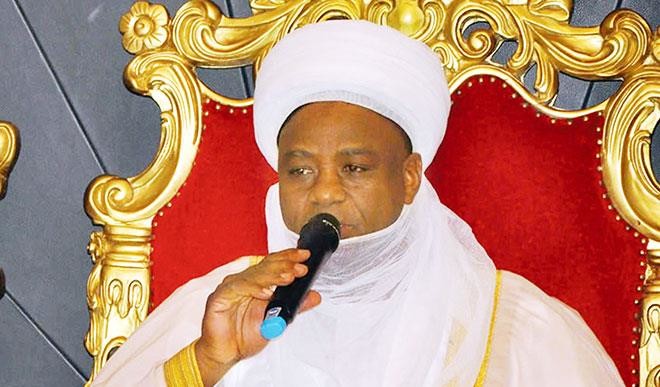Allah says “Fazakkir!” “Remind, as the reminder benefits the believers.”
Every four years or so (generally every midterm through a political term), this page reminds Nigerian political leaders that what they are holding in the name of offices is an ‘amana’, a trust, given them by God. These leaders – elected, selected, imposed – should remember they are there for a purpose, even if they are revolting and repulsive (which many of them are).
In a couple of months, it will be Second Midterm for Buhari Administration’s Second Term; the twilight when the sensible would sit, reflect, review and get the luggage ready. We did this reminder four years ago, and also eight years ago, in 2013, when the Jonathan Administration was midway into its term. It is not ours to say we have reminded enough – Allah’s exhortation to remind is eternal and unceasing.
- PDP presidential ticket will be zoned to North – BoT member
- #EndSARS: What really happened in Oyigbo?
It so happened that back in that 2013, a book, ‘PRINCIPLES OF LEADERSHIP ACCORDING TO THE FOUNDING FATHERS OF THE SOKOTO CALIPHATE’ was released. Edited by senior colleague Dr. Hamid Bobboyi (now Executive Secretary SUBEB), the book was published by His Eminence the Sultan of Sokoto Alhaji Muhammad Sa’ad Abubakar. The founding fathers of the Sokoto Caliphate are, of course, Shaikh Uthman ibn Foduye (Usman Danfodio), Shaikh Abdullah ibn Foduye (Mallam Abdullahi) and Shaikh Muhammad Bello (Sultan Bello).
The book is in five chapters: On the Foundations of Leadership; On Qualities of Leadership; On Leadership and Good Governance; On Leadership and the Management of Public Affairs; and On Leadership and the Struggle Against Corruption. It was no coincidence the book emerged during this political dispensation.
In his Foreword, the Sultan had stated “These ideas [covered in the book] were relevant then as they are patently relevant today, to enable us fathom the responsibilities of leadership…I strongly recommend ‘Principles of Leadership’ to all those charged with authority at all levels of state and society and indeed to all others, in public and private life, who nurture the noble dream of building a better society.” (Four years ago, we had appealed to the Sultan to send a copy of the book to every Nigerian political leader.)
The relevance with today’s happenings is more than striking: for example, in Chapter Two ‘Qualities of Leadership’ (Shunning the Love of Power, at page 16), one of the writers says, “Know…that most of the evil that befalls the state comes from the appointment of officers who are anxious to have the appointment; because none would be keen on such but a thief in the garb of a hermit, and a fox in the guise of a pious worshipper, someone who is keen in the collection of money, sacrificing for such his religion and integrity…”
Doesn’t this sound so familiar? Yet this was penned by Sultan Bello 200 years ago in his ‘Ghayth al-Shu’bub.’ And woe unto us if what the Caliph said two centuries ago would ring so true today.
Further, at page 17 which discusses Personal Qualities Required of a Leader, Bello’s father, the Shehu, lists many, including Wisdom: “A wise man is guided aright by his wisdom and fortified by his sound judgement, so what he says is sound and what he does is commendable, while an ignorant man is caused to go astray as a result of his ignorance; so what he says is unsound and what he does is objectionable…” (‘Bayan Wujub al Hijra’)
Do we wonder why we are so afflicted with the leaders that we have? Listen to what Mallam Abdullahi states in in ‘Diya’ al-Siyasat’ (quoted in Chapter Three of the Principles under Knowledge and Governance at page 50): “The advocate of truth is nowadays exposed to danger because of the extinction of the learned and the triumph of ignorance…knowledge survives only on paper but is absent from the hearts of men. [Hence] the ignorant are allowed to rule…”
Again, but for the Shehu and his brother and son, all those busybodies who claim the moral high ground on the rights of women would continue strutting their stuff, claiming to be ‘Liberators’ of our women. Fie!
Under safeguarding the Rights of Women at page 54 of the Principles (culled from ‘Nurul Albab’), the Shehu states: “One of the great calamities which has afflicted Hausaland is the practice of many of its scholars in abandoning their wives, daughters and servants in a state of ignorance. They are left like animals without any effort to teach them what Allah has made obligatory on them…This is a grievous mistake because the education of wives, daughters and servants is mandatory…O Muslim women! Do not heed the calls of those misguided folk who deceive you into obeying your husbands without ordaining you to obey Allah and His Messenger…”
The Shehu calls Consultation, forbear of Congress or National Assembly “The Second Principle [of Governance]” in his discussion of The Imperative of Mutual Consultation in ‘Bayan Wujub’ at page 50, while Mallam Abdullahi says in ‘Diya al-Hukkam’ that: “The judicial function is a collective obligation which is binding on any individual person who is fully qualified for it…The wisdom behind the formation of a judiciary lies with its usefulness in serving as a deterrent to quarrels and assaults. It suppresses the unjust, and helps the oppressed. It helps to end disputes…Injustice and submitting to one’s whims in judicial matters is one of the gravest sins…(Principles, page 76).
Still in ‘Bayan Wujub’ (at page 27 in Principles), while describing The Animal in Us, the Shehu says “God has confirmed the similarity between us and all other creatures…in behaviour…So when you find someone departing from normal human behaviour, see which animal resembles him in this and class him with it…The Monkey (when you find a man with a tendency to steal furtively, class him with the monkey…); The Fly (When you find a man hunting for other people’s faults, class him with the family of flies)…
In discussing Diseases of the Heart, Mallam Abdullahi (in ‘Masalih al-Insan’ quoted at page 39 here) lists “Pride, Arrogance, Anger, Envy, Hope for Longer Life, Meanness and Eye-Service.” Eye-Service was there two centuries ago. Alas! It is still here with us!
Again, on the matter of Assets Declaration (which advocates of modern good governance would claim ownership), Mallam Abdullahi, in his ‘Diya al-Hukkam’ of 200 years ago (quoted in Principles at page 91) stats that: “[The leader] must be motivated by his desire to find out the true state of affairs on the basis of piety, and not by malice and greed. This applies to matters connected with his employees, by seeking to know about them, by counting their wealth before their appointment, and by looking from time to time into their works. He shall rebuke anyone who fails in his duty; dismiss those who transgress; and replace any person against whom many complaints were made. Whoever is found to have wealth above what he earns from his work, the leader shall confiscate and restore it to the treasury…”
Exactly.
May Allah reward the Sokoto Scholars for writing; the Sultan for publishing; Brother Hamid for collating

 Join Daily Trust WhatsApp Community For Quick Access To News and Happenings Around You.
Join Daily Trust WhatsApp Community For Quick Access To News and Happenings Around You.


